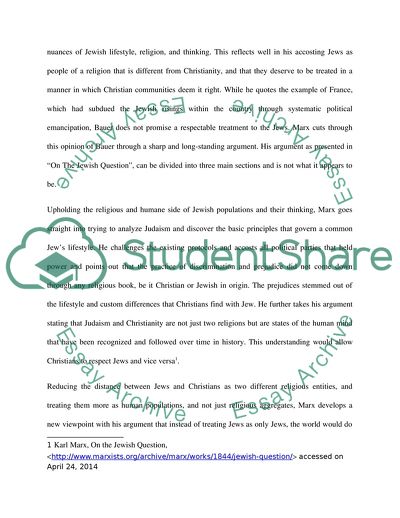Cite this document
(Karl Marx: On the Jewish Question Coursework Example | Topics and Well Written Essays - 2000 words, n.d.)
Karl Marx: On the Jewish Question Coursework Example | Topics and Well Written Essays - 2000 words. https://studentshare.org/politics/1822717-text-based-questionkarl-marx-on-the-jewish-question-1844
Karl Marx: On the Jewish Question Coursework Example | Topics and Well Written Essays - 2000 words. https://studentshare.org/politics/1822717-text-based-questionkarl-marx-on-the-jewish-question-1844
(Karl Marx: On the Jewish Question Coursework Example | Topics and Well Written Essays - 2000 Words)
Karl Marx: On the Jewish Question Coursework Example | Topics and Well Written Essays - 2000 Words. https://studentshare.org/politics/1822717-text-based-questionkarl-marx-on-the-jewish-question-1844.
Karl Marx: On the Jewish Question Coursework Example | Topics and Well Written Essays - 2000 Words. https://studentshare.org/politics/1822717-text-based-questionkarl-marx-on-the-jewish-question-1844.
“Karl Marx: On the Jewish Question Coursework Example | Topics and Well Written Essays - 2000 Words”. https://studentshare.org/politics/1822717-text-based-questionkarl-marx-on-the-jewish-question-1844.


